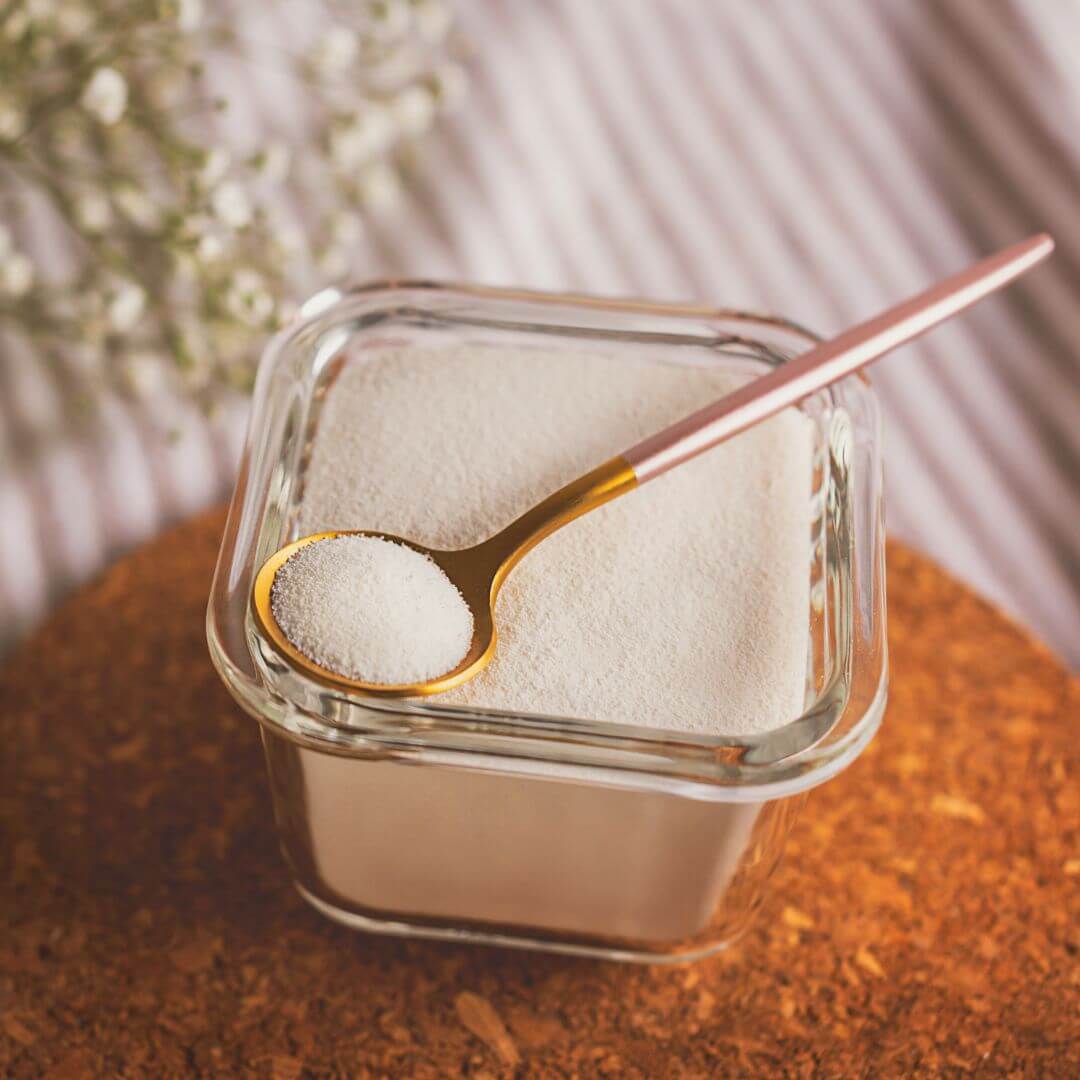Debunking Collagen Myths and Embracing the Science
In the realm of beauty and wellness, few topics have garnered as much attention as collagen. From rejuvenating skin to enhancing joint health, the promises of collagen supplements are aplenty. However, amidst the sea of claims and misconceptions, it's time to separate fact from fiction. In this article, we dive into the fascinating world of collagen, unravelling myths, and revealing the facts that underscore this remarkable protein.
Myth: Collagen is created naturally by the body, so there’s no need to supplement.
Busted: Collagen is a protein naturally present in our body that contributes to the structural elements of epithelial and connective tissues including ligaments, the lining of organs, tendons, cartilage, bone, and skin. Our body's innate collagen production embarks on a slow and inevitable deceleration, commencing as early as our early twenties and this decline is increased by lifestyle and environmental factors such as smoking, sun exposure, pollution, and diet, as well as genetic make-up. By the age of 50, our natural collagen stores can be half of what they were in our late teens and early 20’s. The body doesn’t stop producing collagen, it is the rate of production that begins to slow leading to the visual appearance of aging and may coincide with an increase in gut and joint related issues.
Taking a daily collagen supplement is not going to necessarily bring back our skin to its youthful teens, but it will stimulate the body’s natural production of collagen contributing to increased hydration of the skin, a reduced appearance of fine lines and wrinkles, and improved skin elasticity. The key is to take a quality collagen powder consistently and over time the effects will begin to be seen on the outside and felt on the inside.
The source of collagen is also important and choosing a grass fed and finished bovine collagen or a sustainable wild caught marine collagen supplement provides the best source of collagen powder and is also an ethical choice. When it comes to our food and supplements, it’s not just about what we eat but also what our food consumes. A collagen supplement should also be hydrolysed as this increases the bioavailability of the supplement for collagen synthesis.
Myth: Marine Collagen is more effective than bovine collagen
Busted: The key difference between marine collagen and bovine collagen may be obvious, marine collagen is sourced from fish while bovine collagen is sourced from cattle. Some marketing may claim that one is better than the other but when ingested they have virtually the same effect. Marine collagen has a slightly smaller peptide size, but in terms of functionality and the health benefits are the same. Marine collagen can be also associated with providing more benefits for skin health as it is a Type I collagen, however the ‘type’ of collagen relates to the source as it is processed from the skin of the fish.
Regardless of type, once ingested collagen protein is digested through the body’s protein metabolic pathway where it is broken down into amino acids and then utilised at a cellular level. These amino acids go to the areas of the body that require them, this may be the skin, epithelial lining of the gut, joints or bones; again, this is regardless of type.
Myth: Ingestible collagen is too large, molecularly, to be used by the body.
Busted: To be able to be utilised at a cellular level, all dietary protein needs to be broken down through protein metabolism into amino acids. These amino acids are either utilised or not, according to our body’s requirements. A hydrolysed collagen powder is more bioavailable than a non-hydrolysed supplement as it is already ‘predigested’, meaning it has been broken down int o smaller protein chains called peptides. These smaller peptides are measured in terms of Dalton size as their particles are so small. It is this small peptide size and collagen’s unique amino acid profile that is high in proline, hydroxyproline and glycine, which provides benefits for supporting connective, epithelial and connective tissues within the body. In essence this myth is redundant, protein is a vital macronutrient for our body and most (if not all) protein chains will be too large for our body’s cells to use, they must first be broken down through protein metabolism. It is again, the bioavailability and small peptide size of hydrolysed collagen that allows it to be quickly absorbed into the bloodstream and available for use by the cells in the form of amino acids.
Myth: Collagen can only be derived from animal-based sources
Somewhat True: Collagen is sourced from animals; plants do not produce collagen. However, through the careful selection of plant-based protein sources and fermented plant ingredients vegan collagen alternatives are available that mimic the amino acid profile of animal sourced collagen. Albeit an animal-based collagen is much more bioavailable to us, due to how our protein metabolism pathway has evolved. Plant based collagen boosters are also available on the market that contain vitamins and minerals that support the collagen production within our body. Food rich in vitamin C and zinc are examples of collagen boosting foods as collagen synthesis rely upon these essential vitamins and minerals.
Find out more about the science behind collagen supplementation in our companion article ‘The Science Behind Collagen Supplementation: Fact or Fiction?’ or check out our database on Collagen Research.
Disclaimer: As with any dietary choice, it's essential to strike a balance. A varied and balanced diet, coupled with a healthy lifestyle, is key to overall well-being. This blog post is for informational purposes only and does not constitute medical advice. Consult with your Doctor or healthcare professional regarding your individual health needs before making any changes to your health routine or starting any new dietary supplements.

